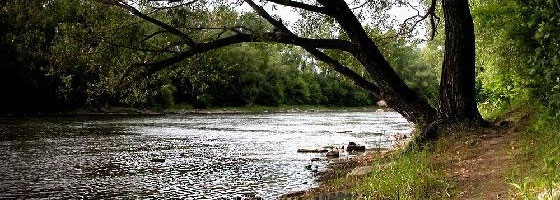Caffeine separates human waste from agricultural waste in water

Researchers at the University of Montreal have found caffeine to be an accurate indicator of human waste in freshwater. The chemical, consumed daily by many in coffees and teas, was found in brooks, streams and storm water in the Island of Montreal. The study revealed a strong correlation between caffeine and bacteria levels in the water.
“This data reveals that any water sample containing more than the equivalent of ten cups of coffee diluted in an Olympic-size swimming pool is definitely contaminated with fecal coliforms,” said lead researcher Sébastien Sauvé in a press release.
Normally, chemists refer to E. coli levels as a marker of human waste in water. However, this could also indicate agricultural waste from groundwater runoff. Caffeine is specific to human consumption, so chemists can now distinguish between the amount of domestic waste and the amount of agricultural waste.
Read more at labcanada.com.
Image credit: Virtual Tourist




0 comments